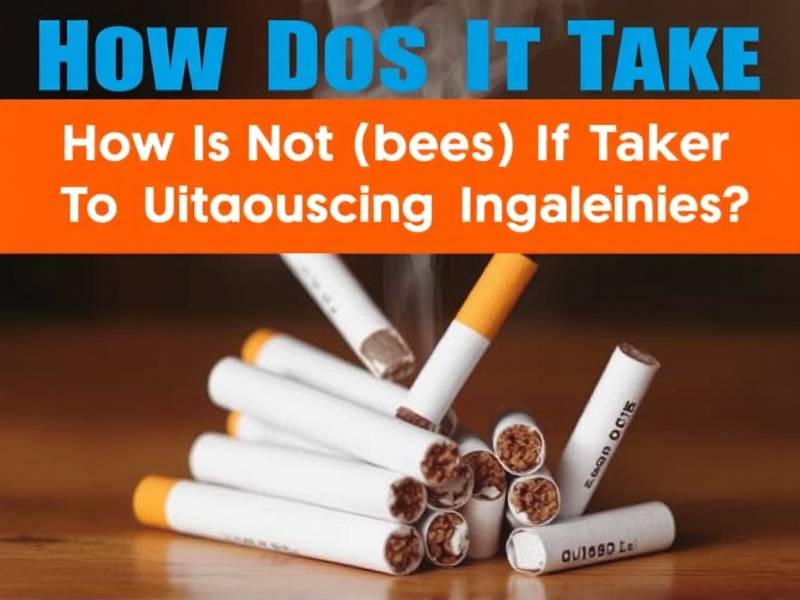How Long Does It Take to Quit Smoking Cigarettes? The Truth You Need to Know
The Reality of Smoking Cessation
The journey to quitting smoking cigarettes can be a challenging one. Many smokers are often left wondering: How long does it really take to quit? The truth is, the timeline for quitting smoking varies from person to person, and several factors can influence the duration and success of this endeavor.
Understanding the Process
Factors Influencing Quitting Time
-
Physical Dependency: Nicotine, the primary addictive substance in cigarettes, affects the brain's reward system. The longer you've been smoking, the more physically dependent you are on nicotine.
-
Psychological Factors: Smokers often use cigarettes as a coping mechanism for stress or boredom. Addressing these underlying issues can help in quitting.

-
Social Environment: Peer pressure and social situations that involve smoking can significantly impact your ability to quit.
Stages of Quitting Smoking
According to the National Institute on Drug Abuse (NIDA), there are five stages of quitting smoking:
- Precontemplation: Not thinking about quitting.
- Contemplation: Thinking about quitting but not ready yet.
- Preparation: Making plans to quit within the next month.
- Action: Having quit within the past six months.
- Maintenance: Remaining smoke-free for at least six months.
Understanding these stages can help you set realistic goals and expectations.
Setting Realistic Expectations
It's important to note that there is no "one-size-fits-all" timeline for quitting smoking. Some may find it easier than others, and some may experience setbacks along the way.
Common Timeline Estimates
- On average, most people try to quit smoking several times before they succeed.
- Most people report that they try to quit between 3 and 5 times before finally succeeding.
- Some studies suggest it takes up to 7 attempts before a person successfully gives up smoking.
Strategies for Success
Behavioral Changes
- Identify Triggers: Recognize situations that make you want to smoke and plan how you'll cope with them.
- Substitute Activities: Replace smoking with healthier habits like exercise or meditation.
Medications and Therapies
- Nicotine Replacement Therapy (NRT): Products like gum, patches, lozenges, inhalers, or nasal sprays provide controlled doses of nicotine without tobacco's other harmful chemicals.
- Non-Nicotine Medications: These include prescription drugs like bupropion (Zyban) or varenicline (Chantix).
Seek Support
- Support Groups: Joining a support group can provide emotional support and practical advice from others who have gone through similar experiences.
- Professional Help: A healthcare provider can offer personalized guidance and treatment options.
Conclusion
Quitting smoking is a journey that requires patience, determination, and sometimes professional help. While there is no definitive timeline for success, understanding the process and having realistic expectations can significantly improve your chances of kicking the habit for good.

Remember, every attempt is progress towards a smoke-free life!
